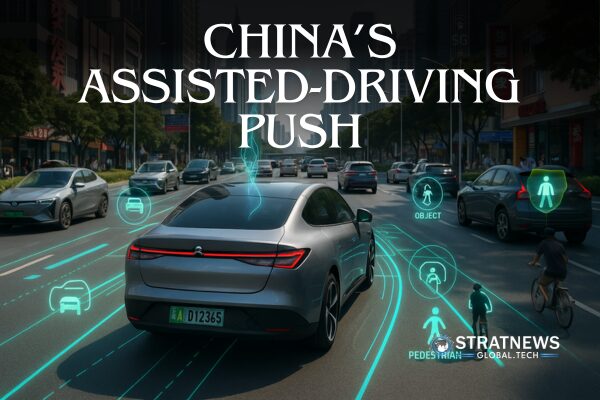China Advances Assisted-Driving Safely
Carmakers in China are moving quickly to advance assisted-driving technology, aiming to attract drivers eager for new features. Yet, Beijing is urging caution alongside speed, especially after a recent crash involving a Xiaomi SU7 sedan in March. The incident killed three people shortly after the driver took back control from the assisted-driving system.
Regulators are finalising new safety rules to manage assisted-driving systems while ensuring Chinese carmakers stay ahead of US and European rivals. Analysts say that clear rules could give China a competitive edge. This differs from the US market, where companies often complain about the lack of regulatory frameworks for testing such systems.
According to Markus Muessig from Accenture Greater China, China’s strategy reflects the “feel the stones to cross the river” approach. This method encourages steady testing of new technologies while ensuring safety for the market.
Clear Rules to Guide Assisted-Driving Growth
Current Chinese laws allow systems that can steer, brake and accelerate automatically under certain conditions. However, drivers must remain engaged, and terms like “smart” and “autonomous” are banned in marketing.
The new rules will focus on ensuring drivers can take control safely when needed. To draft these rules, regulators have worked with automaker Dongfeng and tech giant Huawei while seeking public feedback.
At the same time, the government is pushing for the rapid development of Level 3 systems. These systems allow drivers to take their eyes off the road in specific conditions, marking a midpoint between basic assisted-driving and full autonomy.
In April, state-owned Changan was chosen to start Level 3 testing, but the plan was paused after the Xiaomi incident. However, officials hope to resume testing this year, aiming to approve China’s first Level 3 car in 2026.
The Race for Level 3 Dominance
Assisted-driving systems are becoming a key battleground in China’s competitive car market. Level 2 systems, which handle most driving tasks under supervision, have become common. Automakers, including BYD, are offering these features at little to no extra cost. Research firm Canalys estimates that over 60% of new cars in China this year will have Level 2 capabilities.
China is also preparing automakers for Level 3 liability, ensuring they and their suppliers are responsible if systems fail. This mirrors new legislation in Britain.
At the Shanghai auto show, Huawei announced readiness to launch a Level 3 system for highways, showing a video of passengers singing karaoke while the car drives itself. Geely’s Zeekr brand showcased its 9X SUV with Level 3 software, aiming for mass production if regulations permit.
Meanwhile, global rivals such as Mercedes-Benz and Volkswagen continue to advance their assisted-driving features but are cautious about Level 3 due to the added safety costs. Mercedes-Benz CTO Markus Schaefer noted that while technology costs are falling, the safety investments for Level 3 remain significant.
with inputs from Reuters


